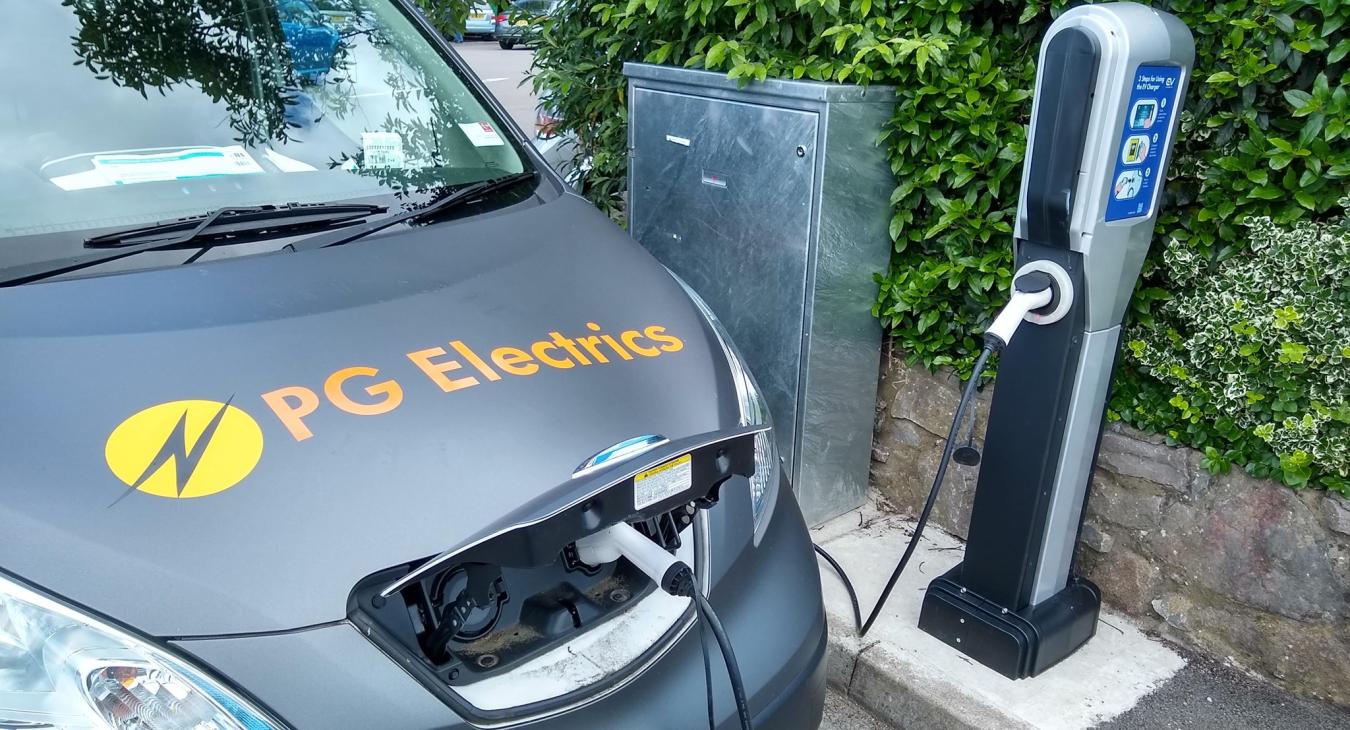
PG Electrics, your local EV charging point installer based in Ebbw Vale. In this blog we’ll dive into FAQs, helpful tips and considerations regarding electric vehicle charging.
The demand for domestic EV charging points continues to grow. With charging stations only just starting to expand, home EV charging is the way to go if you’re considering going green and purchasing an electric vehicle.
Electric vehicle charging – Frequently Asked Questions
Here are some of the most frequently asked questions (& our expert answers 😊) relating to electric vehicles and home charging points:
How long will it take to fully charge my EV?
How long is a piece of string? This question although very valid, needs context for an accurate answer. Standard domestic EV charging points (7kW) will fully charge your EV in around 6-8 hours (on average). This will work out less for Hybrids and could be longer if you have a larger battery size.
Is my home suitable for an EV charger?
Unfortunately, not all homes will have the sufficient infrastructure to home an EV charging point. You’ll need access to off street parking and ensure power (& WIFI if opting for a smart charger) can reach this area effectively. You cannot install a charger within two meters or facing a public highway. You’ll also need to ensure your electrical system can power the charger effectively. Older, outdated electrical systems may struggle under the additional pressure.
Do I need planning permission to install an EV charger?
For most cases, as long as your charging point meets the current requirements, you do not need to gain planning permission for the installation. The only exception where you might need approval is if your property is considered a listed building, located on a conservation area or you live in a flat or maisonette.
What’s the difference between tethered & untethered?
The main difference between tethered and untethered chargers is the charging cable. Tethered chargers have a fixed cable which cannot be switched and untethered cables can be switched from type 1 to type 2 (& vice versa). Neither one is considered better in terms of charging but for convenience opting for an untethered charger is smart – especially if you plan to change your car frequently.
How much does it cost to fit an EV charger?
Again, this question cannot be answered 100& accurately. It depends on the charger you opt for – these will vary in price depending on charging speed, design and whether it has smart tech features. The installation cost itself can vary too depending on how far the charger needs to reach and if your existing electrical system needs updating beforehand. On average, EV chargers can cost anywhere between £800 to £1,500. This might be less if you’re eligible for a government grant – so double check!
Considerations before installing an EV charger at home
Before hiring a certified installer to fit an EV charging point you should consider a few points. Your driving habits, lifestyle, and budget. Understanding how often you use your car, how far you drive on the average week and you budget, from installation to managing energy bills post installation. Here at PG Electrics, Ebbw Vale our expert installers will always offer our advice if requested. You don’t have to go through this process alone remember!
Helpful tips from your Ebbw Vale Electrician
Our best tip – choosing an electrician with previous experience installing a wide range of EV chargers. Even better if they’re OZEV accredited and or an approved installer. PG Electrics, Ebbw Vale are OZEV accredited and approved to install Zappi, Wallbox, Tesla and EO chargers (just to name a few 😊).
Question? Call or contact PG Electrics, Ebbw Vale today. We’re here to help you!
